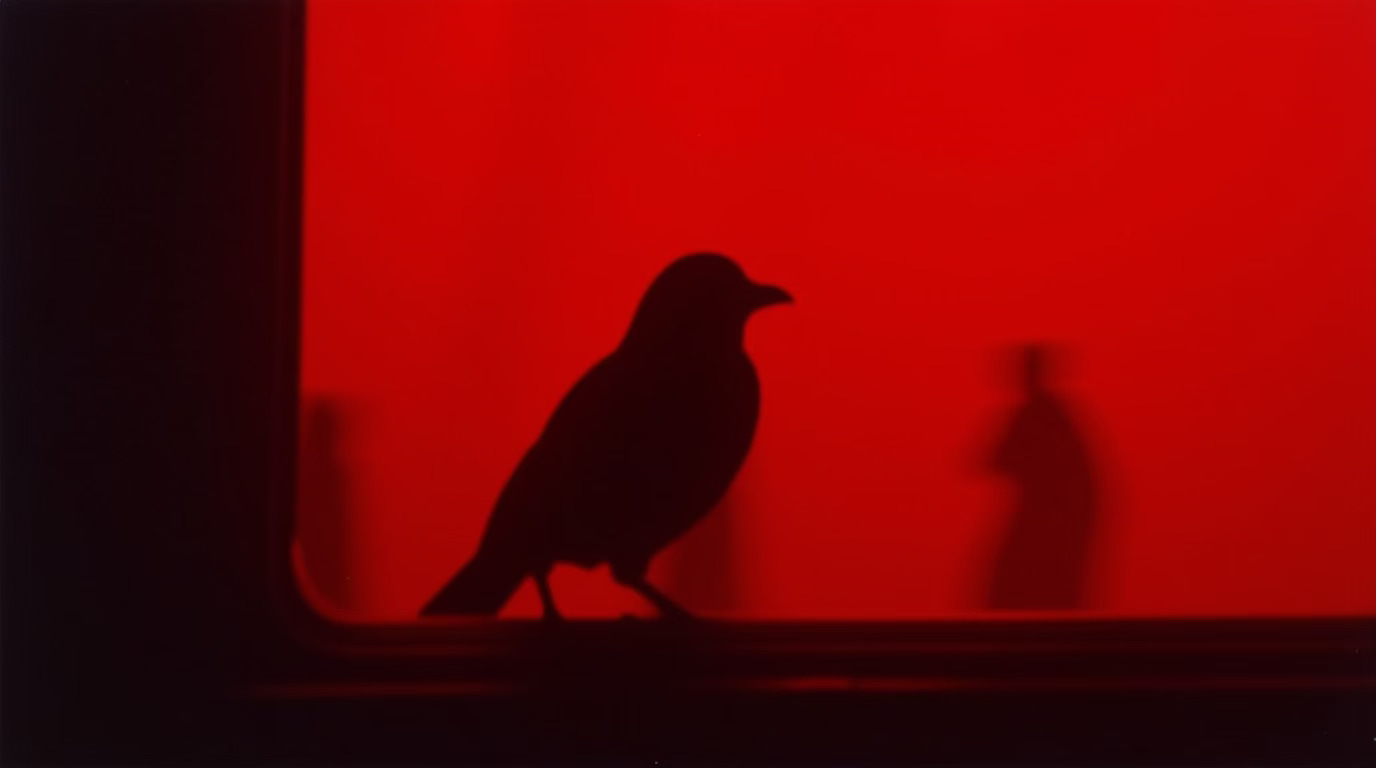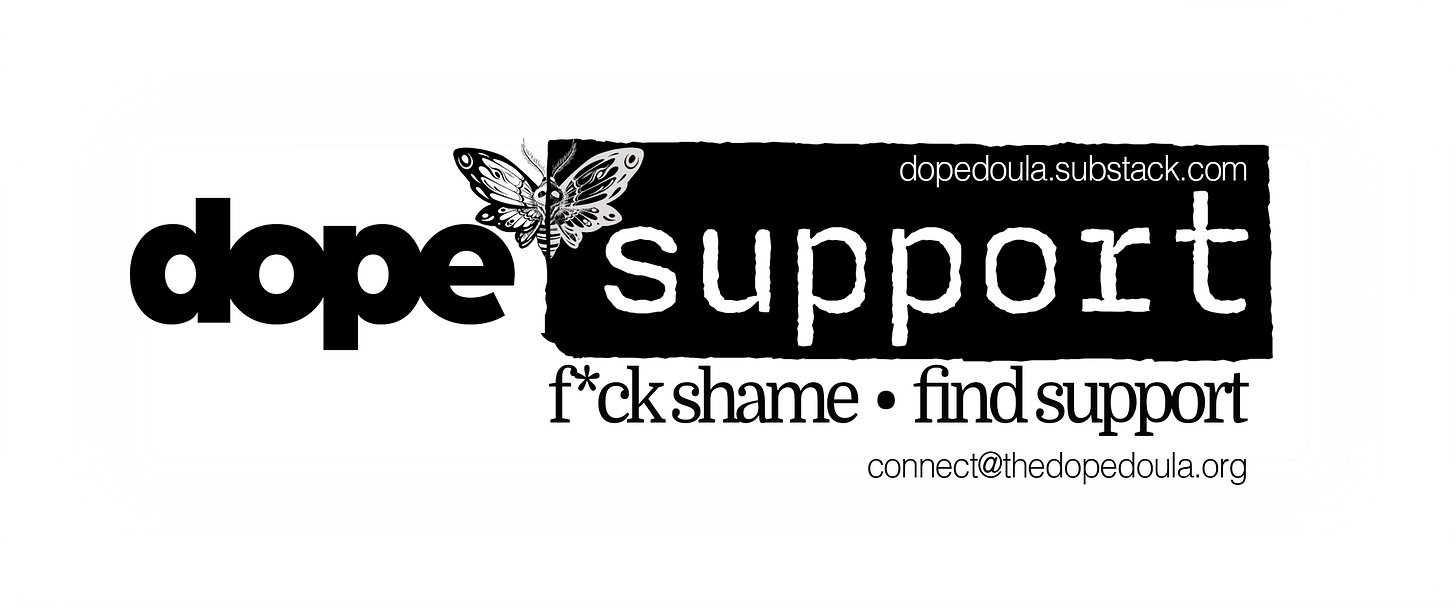Dopamine and Suicide Notes
{Part 15 in the ongoing Long Hard Road series}
As a closet people-pleaser, I’m so tempted to take the one or two positive moments from this week, blow them up, and convince you everything’s peachy. Very tempted.
I could gush about how I finally got my injection scars on my right arm covered with a badass death moth tattoo, a dark, beautiful mark of transformation that hides my past. Or how my poem, “The Maw of Want,” got featured in the “We Are Addicts” compilation by
But I don’t do deception. Sure, I’ve kept my addiction—0.3 to 1.0g of methamphetamine shot into my veins daily to function—under wraps from people outside my inner circle of less than 10. But I don’t call that lying; I call it self-preservation, info on a need-to-know basis. Townsfolk and randos don’t need to know. Being dishonest here, though, would be counterintuitive. My objective is to give you the unfiltered, real-time mess of addiction and recovery—for the curious, for supporters, for anyone fighting their demons and feeling like they are the only one. Addiction loves secrets, but I’m spilling mine to break the stigma. And the primary reason I write? My son. If I’m not around when he starts asking the “but why’s,” the “how could you’s,” the “was I not enough’s,” I hope he might find answers here. I’m desperate to fix my screw-ups, to be the mom he deserves, to raise a strong, resilient man. But just in case I don’t make it, I write so he can find closure, or at least enough truth to draw his own conclusions, not what others say about me or how much he meant to me.
What Addiction Is
The mainstream definition of addiction is: The persistent engagement in a behaviour or use of a substance, despite substantial harm and other negative consequences.
It’s a clean little summary of what addiction looks like, but it doesn’t tell you why, how, or who. I don’t think there can be one perfect, universal definition for addiction because it’s so damn personal. From inception to the experience to how you claw your way out, it’s different for everyone. However, there’s one thing I believe applies to all: the behaviour or substance serves a purpose. It’s the (albeit harmful and not sustainable) solution to a bigger problem, a way to cope, a tool to survive—even if the threat to your survival is perceived. If you’ve ever clung to something to make it through, you’re not as far from addiction as you might think.
I can’t speak for every addicted person, and I don’t want to—our stories are ours alone. I’m just sharing mine to give a peek into this world for those who’ve never lived it.
This Week Was Hard
I find that, upon reflection, this week is, once again, somewhat of a blur. I blame disrupted sleep patterns, a broken heart, and the mental fog of withdrawal that makes everything feel like wading through mud. Neurologically, I’m a mess. Quitting meth after chronic, long-term use screws with your brain, especially the prefrontal cortex (PFC)—responsible for decision-making, impulse control, and keeping your emotions in check. Here’s a quick recap for my fellow ADHDers and any newcomers:
Dopamine Deficiency and Receptor Downregulation
Anhedonia: Can’t feel joy, period.
Depression and low motivation: Dopamine’s gone, so everything sucks.
Compulsive behaviours: My brain needs dopamine, pushing me to keep using or binge eating sugar and carbs… both are preferred
Impaired impulse control and decision-making: The PFC can’t see long-term, so bad choices feel right.
Impaired Neuroplasticity
Learning and memory: Withdrawal causes cognitive fog, memory gaps, and inability to focus.
Cognitive flexibility: Changing habits or adapting to new information is like climbing a mountain.
Emotional processing: Minor stressors hit like a tsunami.
Glutamate Dysregulation
Confusion and irritability
Heightened anxiety: Imbalanced signals make me jumpy.
Difficulty with emotional regulation: Small things = big reactions.
Neuroinflammation and Oxidative Stress
Damages neural connections: Emotions and thoughts are all over the place.
Reduces synaptic plasticity: My brain’s struggling to heal while sober.
Exacerbates mood instability: can you say “psycho bitch”?
HPA Axis Dysregulation
Elevated cortisol: I’m stressed about everything.
Anxiety and panic attacks: Withdrawal makes them constant.
Severe mood swings: My body’s stress response is a rollercoaster.
Autonomic Nervous System Disturbances
Sweating, tremors, racing heart: My body’s freaking out.
Temperature swings: Chills or feeling like I’m burning up.
Sleep disturbances: sleeping all the time.
Note how many times emotions are listed! I’ll say it again, this week was hard. My brain is out to get me and I’m not coping. I am not OK.
To Quit or Not to Quit
I think it’s understandable that I’ve felt hopeless and ready to throw in the towel, but it also isn’t. This is why I designed the protocol in the first place, no? The thing costs a fortune, and I’ll be damned if it’s all for nothing.
I also refuse to be told to be patient. Patience is not a luxury my methed-up brain can afford—if something doesn’t work, and doesn’t work instantly, I can’t be bothered. I’d rather be a mother who struggles to be present but shows up, than the mother I’ve been this week, who snaps at her kid for existing, who can’t speak without shouting or sobbing, who pendulates between asleep and annoyed. The latter is way more damaging, and I’ve caused enough hurt already. The guilt associated with fighting to be better for someone you love is heavier than the addiction itself.
So am I giving up on the protocol? Yes.
Am I giving up on the process? Not yet.
The Plan
I’ve returned to the drawing board, reevaluating the protocol, cutting some supplements, and piling on more peptides. Is this a good idea? Beats me. That’s the thing about peptides; they’re the new “miracle drugs,” and the chatter around them sounds like the psilocybin and psychedelic hype—all rainbows and healing, no mention of interactions, side effects, or what could go wrong. So I’m throwing caution to the wind and “manifesting” the outcome I want. If you have to ask why “manifesting” is in quotes, please ignore it.
I’m already burdened by immense guilt, but I’ve managed it—I felt like there was a balance of sorts since my child still came to me for comfort, we shared a telepathic and deeply emotional connection, and I have always been his safe space. But after this week, seeing that I can’t modulate my reactions, no matter how hard I try, or how present or aware I am, still consistently losing my temper because of ridiculous little things; and with absolutely nobody with whom to coregulate, without any in-person, accessible support, I’ve caught myself contemplating suicide.
Although I am beginning to believe that, in the long run, he’d probably have a better chance at a happy and fulfilled life without me, the only thing stopping me is the fear that, at this time, it’d push my son over the edge, that he’d follow me down the addiction path, the suicide path, or both, because, let’s face it—he would internalise it and believe that it was his fault. So, for now, I live and overthink another day.
For those who are subscribed strictly for protocol updates (looking at you, Big), I will share the updated protocol with rationale in the next two days.
Thanks for sticking with me. Stay safe out there.
Reminder: Dope Support kicks off this Wednesday, May 21. Click the button below to join.
Our core values are empathy, autonomy, and mutual respect. We don’t enforce abstinence, push advice, or judge worth. We don’t fix or diagnose. Instead, we offer a brave space for honesty, vulnerability, and community. Your story is yours to share (or not). We respect your boundaries, triggers, and choices.
Thank you for taking the time to read Matters of Substance. These pieces are like love letters—intimate reflections where I bare my soul, sharing raw details of my journey through trauma, drugs, addiction, and healing. As a South African, I cannot set up Substack subscriptions, and I want to keep it free for those who cannot afford the info.
However, if you feel compelled to support my work, tips are always appreciated.







I've got ADD (no H) and I know what it's like to live your entire adult life with a thimbles worth of dopamine, whilst everyone else has a full tank.
It's hard and it's hell.
I'm rooting you on from the sidelines. You can do this.
I imagine hell to be like this. Sending you much much love peace and light. You are not alone my friend.